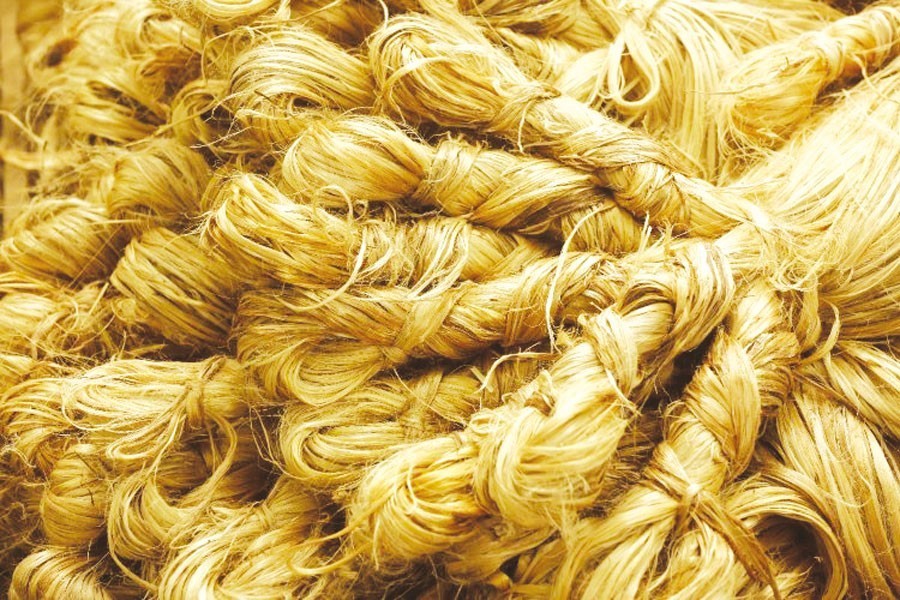The government on Tuesday launched a special drive countrywide against hoarding of raw jute aiming to ensure fair price of the golden fibre in local markets.
To this effect, the Department of Jute (DoJ) issued a circular on Sunday to the officials concerned in 10 large-scale jute-producing areas-Narayanganj, Mymensingh, Chattogram, Cumilla, Faridpur, Khulna, Jashore, Rajshahi, Rangpur and Dinajpur.
The mobile-court drive that will continue until February 15 will also clamp down on violation of the Mandatory Jute Packaging Act-2010, according to the circular.
The crackdown comes following a demand raised by the jute millers and exporters recently, industry insiders said.
Talking to the FE, Mohammad Ataur Rahman, director general of the DoJ, said a 15-day mobile- court drive against illegal stocking of raw jute started on Tuesday.
"Under the programme, we would investigate if anyone is hoarding jaw jute unlawfully, and the offenders would be punished duly," he said.
Mr Rahman also said they had been continuing regular drive against the hoarders (of raw jute) for several years; but they have taken this special programme responding to the demand of millers.
As per the directive of the DoJ, a stocker cannot store more than 1,000 maunds of raw jute for more than one month while no one can trade in jute without having license.
However, the jute millers and exporters called upon the government a week back to take necessary steps against the hoarders so that they cannot manipulate the raw-jute market.
Bangladesh Jute Mills Association (BJMA), Bangladesh Jute Spinners Association (BJSA), Bangladesh Jute Association (BJA) and Bangladesh Jute Goods Exporters Association (BJGEA) placed the demand at a view-exchange meeting at the BJMA conference room in the city on January 25. BJMA Chairman Abul Hossain, presiding over the meeting, said a section of unscrupulous traders has engaged themselves in hoarding raw jute over the past three years.
He lamented the fact that the farmers were being deprived of fair price though the golden fibre was selling at higher prices.
Millers cannot run their units because of scarcity of raw jute whereas a good number of mills are facing closure, he observed.


